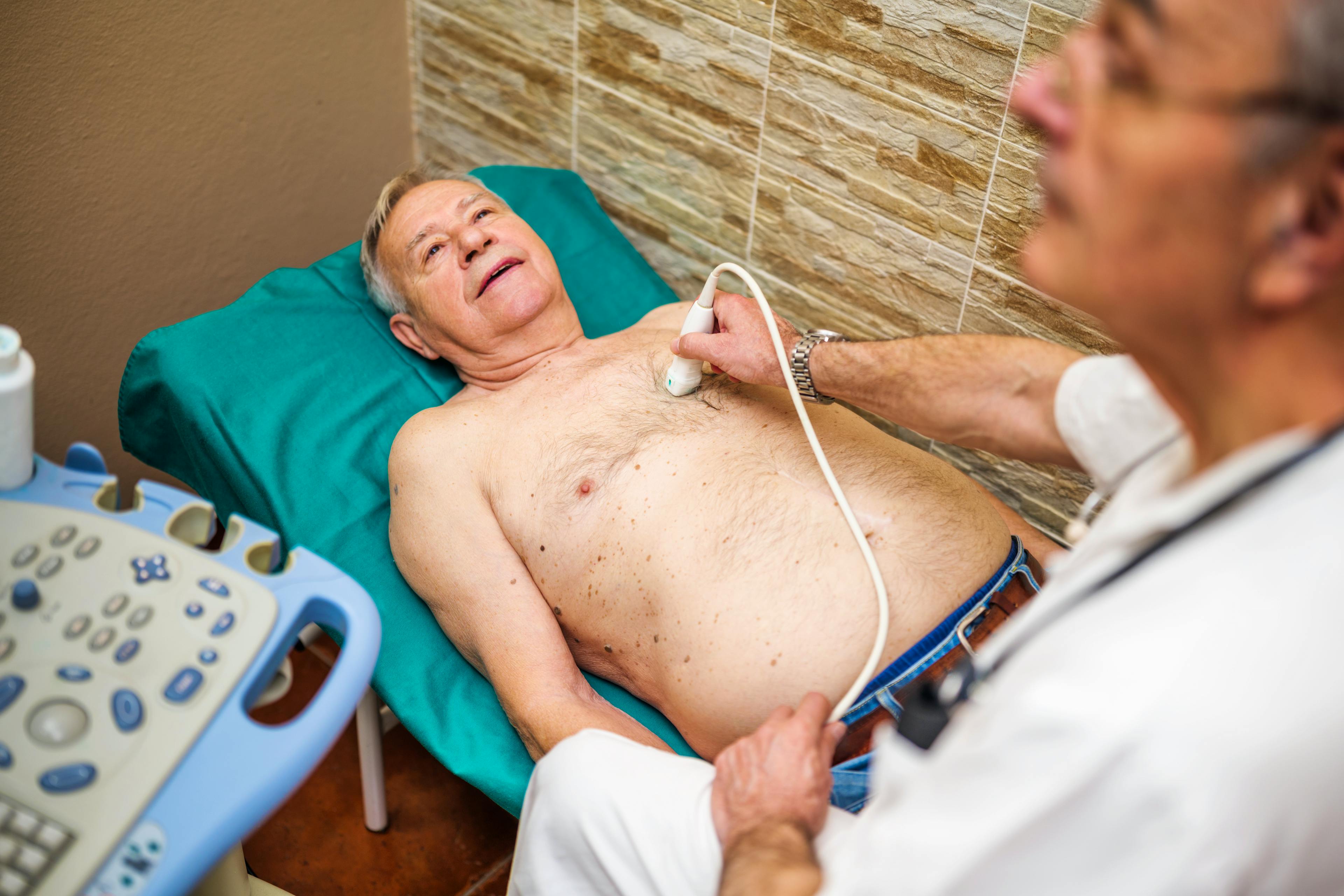A healthy heart is critical when it comes to living a full and active lifestyle. CLS Health offers advanced echocardiography services to help diagnose and manage a wide range of heart conditions. Our expert cardiologists use cutting-edge ultrasound technology to evaluate your heart’s performance, ensuring accurate results and personalized treatment plans.
What is an Echocardiogram
An echocardiogram test uses sound waves to create real-time images of your heart. This test allows cardiologists to assess how well your heart is beating and how efficiently it pumps blood. It is typically used to detect heart disease, heart failure, cardiomyopathy, and valve disorders.
Unlike an electrocardiogram (EKG or ECG), which measures electrical activity, an echocardiogram provides a visual assessment of the heart's structure and function.
What are the different types of echocardiogram?
There are different types of echocardiograms, each designed for specific diagnostic purposes. Your doctor will determine the best option based on your symptoms and medical history.
Transthoracic echocardiogram
This is the most common type of echocardiogram test. A technician places a small probe (transducer) on your chest, which sends sound waves to create images of your heart. It is painless and typically takes 30 to 60 minutes.
Transesophageal echocardiogram
If a more detailed view is needed, a transesophageal echocardiogram may be recommended. A thin, flexible tube with a transducer is gently inserted down the esophagus to capture high-resolution images. This approach is often used to assess valve function, blood clots, or congenital heart conditions.
Exercise stress echocardiogram
A stress echocardiogram evaluates how your heart responds to physical activity. Patients walk on a treadmill or take medication to increase heart rate while undergoing imaging. This test is often used to assess coronary artery disease and blood flow issues.
How long does an echocardiogram take?
The duration of the test depends on the type of echocardiogram performed:
- Transthoracic echocardiogram: 30-60 minutes
- Transesophageal echocardiogram: 60-90 minutes (including sedation and recovery)
- Stress echocardiogram: 60 minutes (including exercise or medication administration)
The good news? Most echocardiograms require minimal preparation and allow you to return to your normal activities the same day.
When would I need an echocardiogram?
Your doctor may recommend an echocardiogram if you experience symptoms such as:
- Chest pain
- Shortness of breath
- Fatigue
- Heart murmur
- Irregular heartbeat
- Swelling in the legs or ankles
This test is also used to monitor heart conditions and evaluate the effectiveness of treatments, including medications or surgical procedures.
What does it diagnose?
Echocardiograms help diagnose and manage the following heart-related conditions:
- Coronary artery disease – Detects reduced blood flow to the heart.
- Heart failure – Measures the heart’s ability to pump blood (ejection fraction).
- Cardiomyopathy – Evaluates changes in heart muscle size and strength.
- Valve disorders – Checks for leaking or narrowed heart valves.
- Congenital heart defects – Identifies structural abnormalities present at birth.
- Myocardial infarction (heart attack) – Assesses damage to the heart muscle.
In some cases, you may need the expertise of a vascular surgeon to address conditions affecting your blood vessels and circulation, ensuring comprehensive cardiovascular care.
Echocardiogram at CLS Health
CLS health provides precise, reliable echocardiography services to help you take charge of your heart health. Our cardiology specialists use advanced imaging technology to detect, monitor, and manage heart conditions with accuracy and care.
FAQs
Preparation for an echocardiogram depends on the type of test being performed:
- Transthoracic echocardiogram (TTE): Does not require any special preparation. You can eat, drink, and take medications as usual.
- Transesophageal echocardiogram (TEE): Requires fasting for at least six hours before the test. Because sedation is used, you should arrange for someone to drive you home after the procedure.
Stress echocardiogram: May involve exercise or medication to increase heart rate. Wear comfortable clothing and avoid caffeine or certain medications as instructed by your doctor.
Typically, echocardiograms are safe and non-invasive with minimal risks. Transthoracic and stress echocardiograms pose no significant risks, while a transesophageal echocardiogram may cause temporary throat discomfort or, in rare cases, irritation from the tube.
Your cardiologist will review your echocardiogram results and discuss the findings with you. In most cases, results are available within 24 to 72 hours. However, if further analysis is required, such as a detailed evaluation of heart function or blood flow, it may take up to a week. If the test is done in an emergency setting, preliminary results may be available immediately.
An electrocardiogram (EKG/ECG) records electrical activity and detects heart rhythm abnormalities. An echocardiogram, on the other hand, creates images of the heart’s structure and function, providing detailed insights into blood flow, valve function, and heart muscle health.
An echocardiogram examines several key aspects of heart function, including:
- Heart chambers: Assesses the size and performance of the atria and ventricles to ensure they are pumping blood effectively.
- Heart valves: Checks whether the valves are opening and closing properly to maintain healthy blood flow, identifying issues such as stenosis or regurgitation.
- Ejection fraction: Measures how well the heart pumps blood with each beat, providing vital information for diagnosing heart failure.
Blood flow: Uses Doppler technology to analyze circulation, detect blockages, and determine if blood is moving smoothly through the heart and major arteries.
